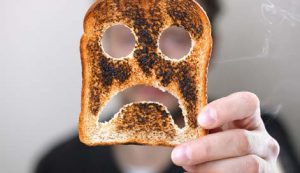Caitlin Moran writes in the Times, such a good article. She gives me permission to share it with you since not everyone reads The Times
“What I would say to all teenage girls who are struggling or overwhelmed right now”
I have just finished a tour where I spoke on stage, for two hours, about doubt and self loathing, anxiety, eating disorders, hope, joy and wanting to change both yourself and the world – because those are the subjects of my latest book, How to Build a Girl. And unless I was ill, I would always sign books and meet everyone after.
……..
When you are someone who talks about the bloody war of attrition that adolescence can so often be – especially for girls – you tend to get two kinds of people coming to the gigs. Half are the ones who’ve already been through it – winking and hooting, “Thank you for telling the truth. And thank God it’s all over”.And the other half? They are the ones still going through it. You can tell instantly as they step up. The posture, the sleeves over the hands, something in the eyes – the girls who are struggling right now.
Some of them are hard and tense with overeating. Others , anorexic, feeling like starving baby birds when you hug them – a handful of brittle bamboo canes. There are arms furious with criss-cross razor lines. Studs in the ear, the nose, the tongue, where they have tried to reclaim their bodies from something, or someone, with the snap of a piercing gun.
Sometimes their parents are there – standing in the background, nervous, their faces anxiously projecting, “She likes you. Please make her feel better now. Oh Christ, don’t break her”.
Other times, the parents aren’t there, but still present – their carelessness or rejection as tangible as if they were standing a foot away, casting mile-long shadows. What do I say to these girls? The ones who are having the Bad Year – the Bad Year where you cannot remember why you were happy aged 12, and cannot imagine being happy at 21? What can you say in one minute, two minutes, three minutes?
So many things. That panic and anxiety will lie to you – they are gonzo, malign commentators on the events of your life. Their counsel is wrong. You are as high wired and badly advised by adrenaline as you would be by cocaine. Panic and anxiety are mad, drugged fools. Do not listen to their grinding-toothed, sweaty bulls****.
Here is a promise, and a fact: you will never, in your life, ever have to deal with anything more than the next minute. However much it feels like you are approaching an event – an exam, a conversation, a decision, a kiss – where, if you screw it up, the entire future will just burn to hell in front of you and you will end, you are not. That will never happen. That is not what happens. The minutes always come one at a time, inside hours that come one at a time, inside days that come one at a time – all orderly strung, like pearls on a necklace, suspended in a graceful line. You will never, ever have to deal with more than the next 60 seconds. Do the calm, right thing that needs to be done in that minute. The work, or the breathing, or the smile. You can do that, for just one minute. And if you can do a minute, you can do the next.
Pretend you are your own baby. You would never cut that baby or starve it, or overfeed it until it cried in pain, or tell it it was worthless. Sometimes, girls have to be mothers to themselves. Your body wants to live – that’s all and everything it was born to do. Let it do that, in the safety you provide it. Protect it. That is your biggest job. To protect your skin, and heart.
Buy flowers – or if you are poor, steal one from someone’s garden; the world owes you that much at least: blossom – and put them at the end of the bed. When you wake, look at it, and tell yourself you are the kind of person who wakes up and sees flowers. This stops your first thought being, “I fear today. Today is the day maybe I cannot survive anymore, ” which I know is what you would otherwise think. Thinking about blossom before you think about terror is what girls must always do, in the Bad Years.
And the most important thing? To know that you were not born like this. You were not born scared and self-loathing and overwhelmed. Things have been done – which means things can be undone. It is hard work. But you are not scared of hard work, compared with everything else you have dealt with. Because what you must do right now, and for the rest of your life, is learn how to build a girl. You.
And Deanne says. Thank you Caitlin for saying these things with the words I can’t always find.
 The experts are now making demons of sugar and saying its really OK to eat fat and fat doesn’t make you fat. I think the message will get home in about 100 years but I don’t think that people who suffer with bulimia and anorexia will take much notice. Because eating is the problem and the nutrients don’t matter very much. I often wonder whether if people with eating disorders could eat anything they liked and not gain weight, they would still be afraid of food. Because food means much more than what it is in it.
The experts are now making demons of sugar and saying its really OK to eat fat and fat doesn’t make you fat. I think the message will get home in about 100 years but I don’t think that people who suffer with bulimia and anorexia will take much notice. Because eating is the problem and the nutrients don’t matter very much. I often wonder whether if people with eating disorders could eat anything they liked and not gain weight, they would still be afraid of food. Because food means much more than what it is in it.









